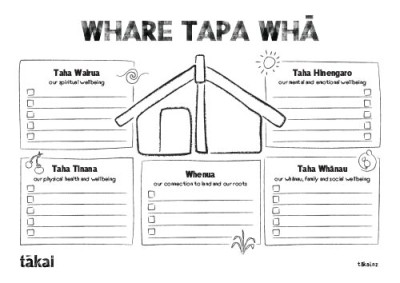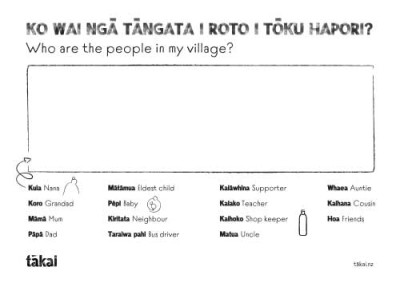
Making a positive difference for our whānau
How to look after yourself and get the support you need as a new parent.
Although there are many positive and exciting changes associated with becoming a parent, it can also be an uncertain time.
Caring for baby, caring for parents
It’s a demanding job for parents to meet their baby’s emotional and physical needs. Parents also have emotional and physical needs that must be met so they can provide good care for their baby. The quality of the relationship they have with their baby shapes how baby’s brain will be built and builds a foundation for baby’s future emotional and physical health.
After birth, the needs of young babies are continual and parents may experience a roller coaster of strong emotions throughout a day. At times, they may feel exhausted and overwhelmed. These ups and downs are a very normal part of parenting a small baby. Parents are likely to have good days and some that are not so good.
Adapting and looking after each other
A supportive partner is one of the most helpful factors a new mother can have. Family or whānau and friends can provide emotional support too and may help with ideas and options for parenting baby.
Parents’ relationships with each other will change too as they adjust to include their new baby. Older siblings will also experience change as they move into their new role and place in the family.
We parent based on the way we were parented
Looking back on their own early experiences of being parented may awaken a mix of memories and feelings for parents-to-be. They may want to do some things the same as their parents did and some things differently. Parents tend to parent in the way they were parented and the quality and type of attachment they had can be passed on to the next generation — although this doesn’t have to be the case.
Being emotionally responsive to baby
Parents need to be emotionally available and responsive to their baby most of the time to support the development of a healthy attachment relationship. They play a key role in regulating their baby’s emotions and stress, but may find this difficult if they’re struggling with their own emotions and stress.
Hardship and risk factors
Parents who are experiencing a lot of hardship may need additional support and resources to help them cope. Risk factors that make it difficult for parents to interact with and care for their baby in a positive way include:
- alcohol or substance misuse
- depression
- health problems
- illness
- low confidence
- poverty
- poor housing
- relationship conflicts.
Parents who are socially isolated, have little support, no-one to confide in and not enough help from outside supports may also be at risk.
The more risk factors that parents are experiencing, the more likely their children will have poor outcomes. Help and support from family or whānau, friends and the community can make a big difference for parents who are struggling.
Staying healthy and getting support
To provide good care for baby, parents need to take care of themselves and be supportive towards each other. A healthy lifestyle can help. Good food and being able to sleep or rest when baby is sleeping may help parents feel more on top of things.
Family or whānau and friends can make a big difference with practical support in the home, such as helping with meals and housework. Trusted adults may also babysit to give parents some time away from baby and/or older siblings. If parents have on-going negative feelings towards their baby, they need to talk to a health professional.
Remember:
- It’s never too early for parents to reflect on how they were parented and to talk about patterns they want to recreate and those they want to change.
- It’s normal for parents to experience a mix of moods and emotions after the birth of their baby.
- Parents need to be emotionally healthy to care for their baby.
The Perinatal Anxiety and Depression website contains relevant information, avenues for support and fact sheets for parents who need extra support












